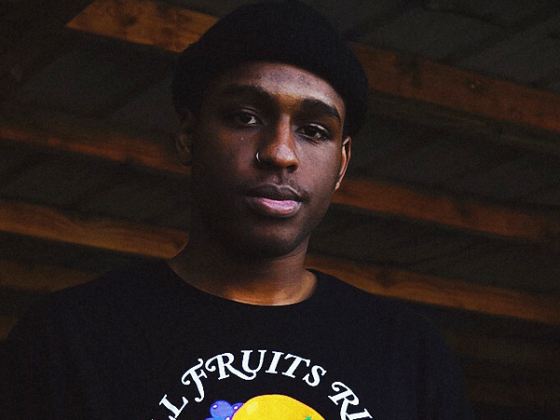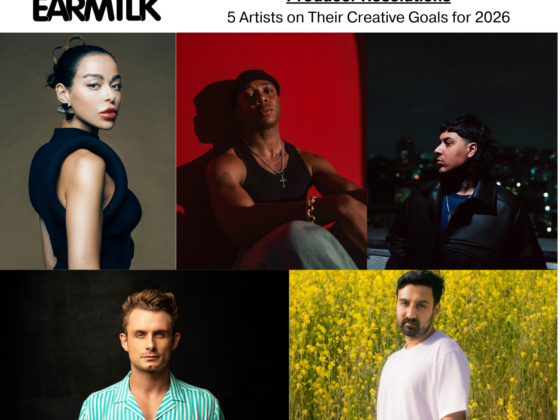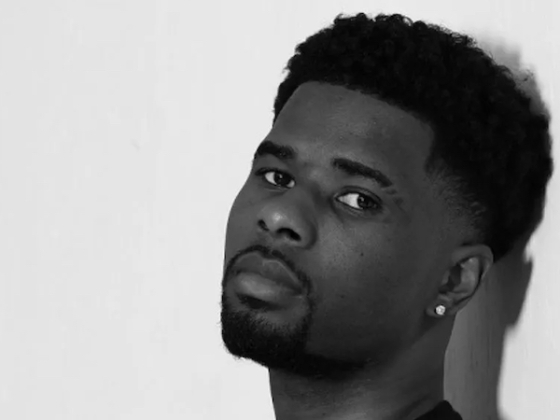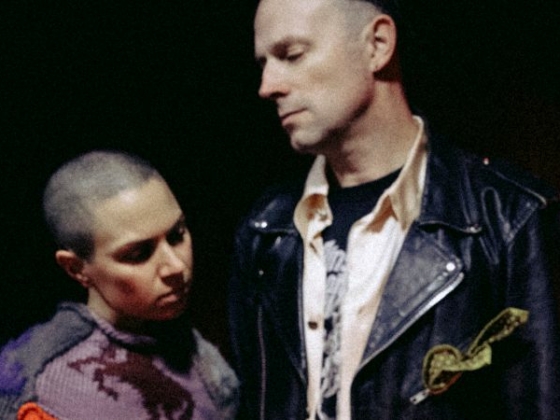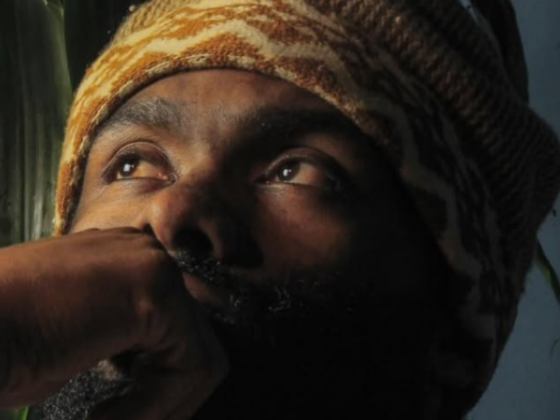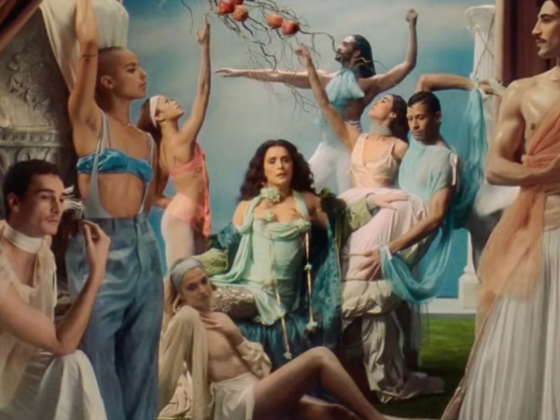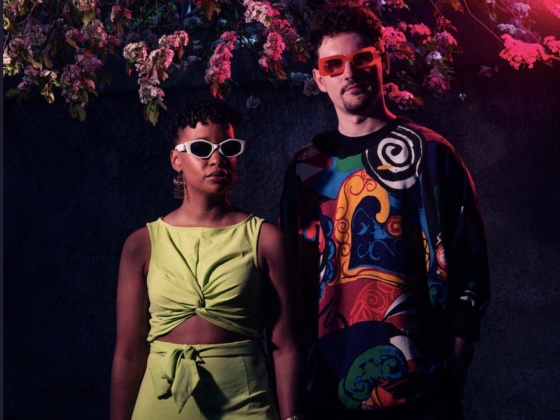The mood of R&B singer-songwriter Kevin Garrett’s debut album, Hoax, can be summed up in one color. It’s a deep-space, almost midnight blue, with a light halo around it. You can find it on the album cover — the hue emanating from the word as it appears as a neon sign.
The 13 tracks that make up Hoax, which stands for a “hell of a heartbreak,” beautifully chronicle the Pittsburgh native’s journey of self-reflection and, well — heartbreak. It’s a vulnerable body of work that showcases Garrett’s tender tenor above all, and teems with raw emotion that begs to be felt. But it’s been a long road up to this release. The singer went on tour for several years, supporting the likes of James Vincent McMorrow and Mumford and Sons, and released two EPs of his own: Mellow Drama in 2015 and then later False Hope in 2017. In between, Garrett co-wrote and co-produced "Pray You Catch Me", the lead track on Beyoncé's 2016 album, Lemonade, for which he received a Grammy nomination.
But now, Garrett is finally telling his story in full, and leaving it all on the table. And ahead of his upcoming extensive North American tour, EARMILK talked to Garrett about Hoax, coping, and using music and past experience as means of confronting yourself, for better or for worse.
EARMILK: How does it feel to have your debut album finally out?
Kevin Garrett: “I think finally is a good word. I'm an independent artist, and I got really lucky with a lot of tour looks when I was first putting a couple songs out. And I was on the road pretty much nonstop for four years. Those EPs and this album, they were all coming from the same list of songs. And I don't think I initially had ever intended on putting an EP out — I think this album was always the first thing I wanted to release.”
Garrett: “And then, to go along with kind of being put through the industry wringer, if you will, the album itself, overtime, started to become this kind of barrier for me. Because I wanted to do it right, but I also wanted to do it at all. And to finally get to this point … I remember last summer when I started to get the final mixes in, and it was ike this weight was taken off of my shoulders. And could kind of articulate myself a bit more clearly in different parts of my life — that's how heavy this record is to me. And it's cool to finally let other people take care of it, all I have to do is just sing the right notes. Definitely a very sort of cathartic moment, I guess, when the record came out.”
EM: I'm sure because you've been sitting on these, or versions of them at least, for a really long time, right? I read that, which one was it, you had that since you were in your first band when you were 14.
Garrett: I wrote the song called Telescopes when I was 14. And I just turned 28, so it's been half my life living with that song. And “Faith You Might” was a song that was from my old band when I was in college. That band, for better or worse, was a vehicle for my songwriting because I wasn't too sure on my name at that point. I still am not sure. So I've definitely been living with this music for a long time.
EM: And now you get to actually perform them. So you can really see people's reactions to the songs in real time?
Garrett: Even though I've written this music over the course of several years, the meanings behind the songs when I wrote them were about certain experiences. And I think the universal nature of music is that if it's done well, you can relate to it over multiple experiences. And so, the songs are still getting to me when I play them, so that means that, hopefully, I did my job.
EM: Tell me about the significance of the title of the album, Hoax.
Garrett: I had the word “hoax” in my head for a long time. I like that word. I think it refers to sort of singing about things that happened to you, but the trick of it all is that you're the reason that those things are happening, I guess. And then I was writing the word one time, a couple of years ago. I messed up the “X” on the word “hoax” and it looked like there was a heart in there. So it me it spelled out "hell of a heartbreak." And obviously that sort of defines the arch of the record, this kind of bell curve of that sort of set of emotions. And then trying to resolve some things by the end of it all, but we all know that resolution is sometimes impossible.
“I was writing this music about things that were very personal to me, but treating it all as a moment of self-reflection. Because you are only in control of yourself, more often than not, and I think that my goal is to treat this music as if I were looking in the mirror and sort of asking myself, ‘How did we get here?’ And while externally or outwardly, there's an ease or kind of a relative simplicity thinking that there was a catalyst or an impetus for where this pain comes from or whatever — that it might be more internal.”
Me: Most of the work that you do is so personal and so steeped in emotion. Is releasing and playing this music a catharsis for you?
Garrett: “The reason I want to put the music out is to try and offer some type of relative connection with people. I make my songs for myself at first, so I can try and get around the corner that I can't really figure out. And then I release them with the hopes of seeing if anybody who wants to listen can get around their own corner.”.
EM: What song on Hoax (or songs), was the most difficult for you to write?
Garrett: “‘Title Track’ was the first song I wrote when I knew this would be for the record. I never called it ‘Hoax,’ it was always called ‘Title Track,’ and then it ended up just sticking. It sort of perfectly embodies this concept that I'm trying to articulate, where you're grasping with a couple different ideas about yourself and there’s too much time spent thinking about it, overanalyzing things. That song wasn't necessarily difficult to write, but definitely a moment of realization. I think the hardest song to get through on the record is the last one, ‘Like We Used To.’ I don't even know if I can play it on the tour, to be honest. That one's tough.”
EM: What about the “easiest,” for lack of a better word?
Garrett: “I think ‘Warn,’ which is the first song. It's very similar to the way I wrote ‘Pray You Catch Me’ [from Beyoncé’s Lemonade] in that it was all lyrics first and then I kind of scratched words out to make them fit the melodies. And it was inspired by some of my favorite poets. And I think the other song that I'll keep putting in the set list is ‘Love You Less’ because I think that one, more than anything else on the record, offers the brightest glimpse at blind hope. I need that sort of optimism in the set every once in a while, otherwise I'm going to have a total breakdown.”
EM: This album deals with some heavy themes — how do you keep yourself from getting too caught up in the depth of it all?
Garrett: “I used to be really good at kind of turning myself off, especially when I was playing, because I'm a perfectionist, so I needed people to know that I'm okay. But at the risk of sounding dramatic or cheesy or whatever, this record — the process of remaking this record last year along with stuff that was going on in my life, it kind of put things in this sort of more open perspective. I guess in some weird way, if you thought I was vulnerable before, this is a whole new level. But we'll see what happens this tour, I guess. I think people coming to the tour will see a very honest performance because but I'm not gonna hold anything back again.”
“This also applies to those just listening to the album. But if they do come to the tour, hopefully there's a moment of connection at some point for them if they're listening or watching. The ultimate goal is that you can listen to a song the way I listen to my favorite songs and sort of confront something or realize something that has a lot of meaning for yourself. And then also to know that it's okay to be sad, but there also can be an understanding that things get better.”
Connect with Kevin Garrett: Twitter | Instagram | Spotify



